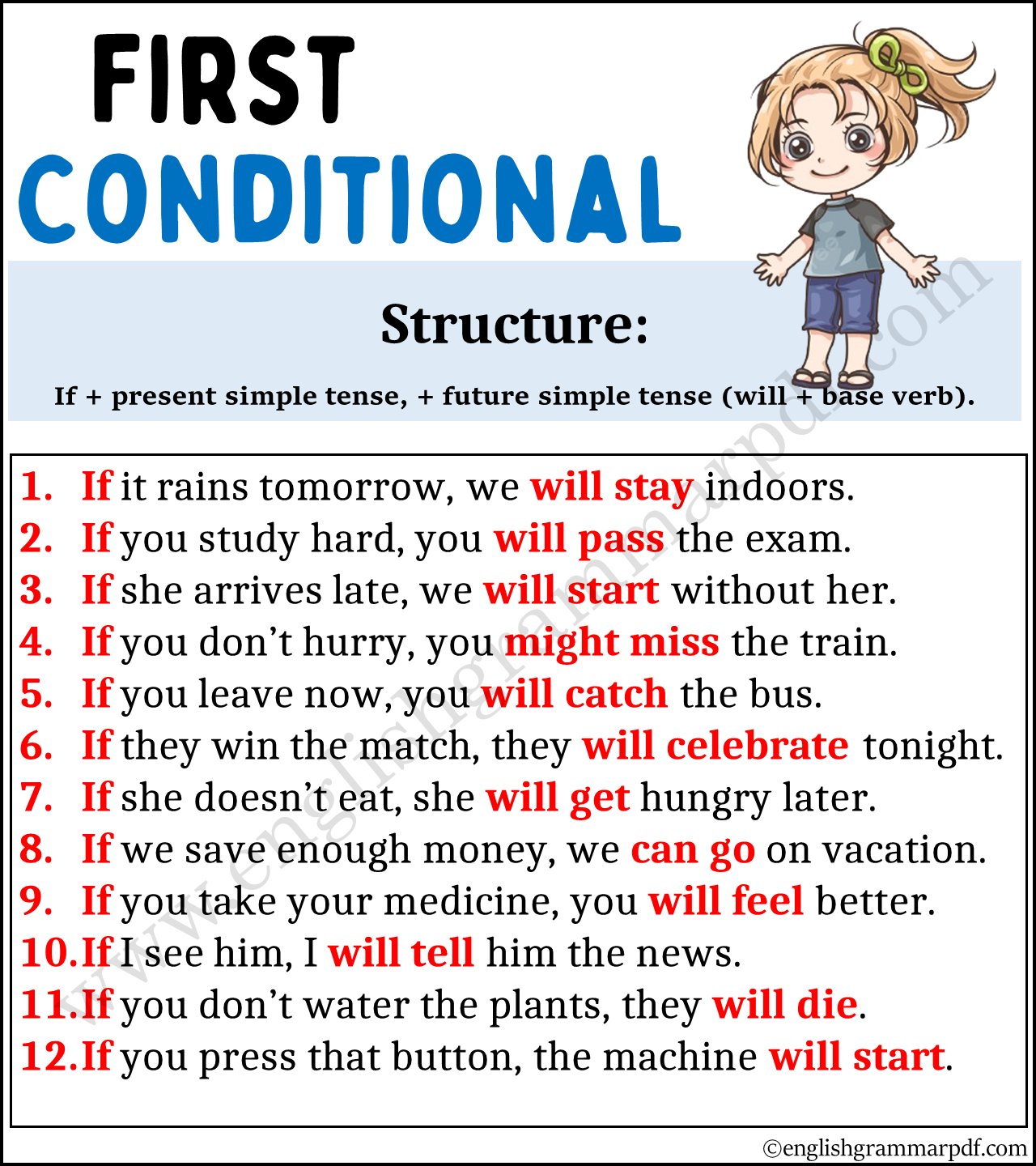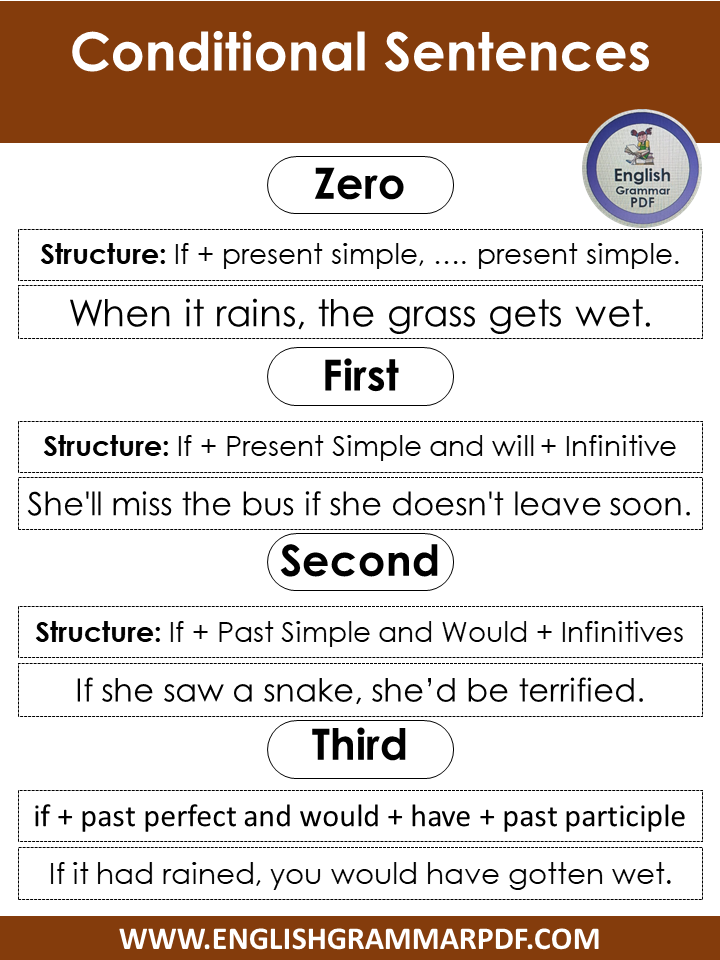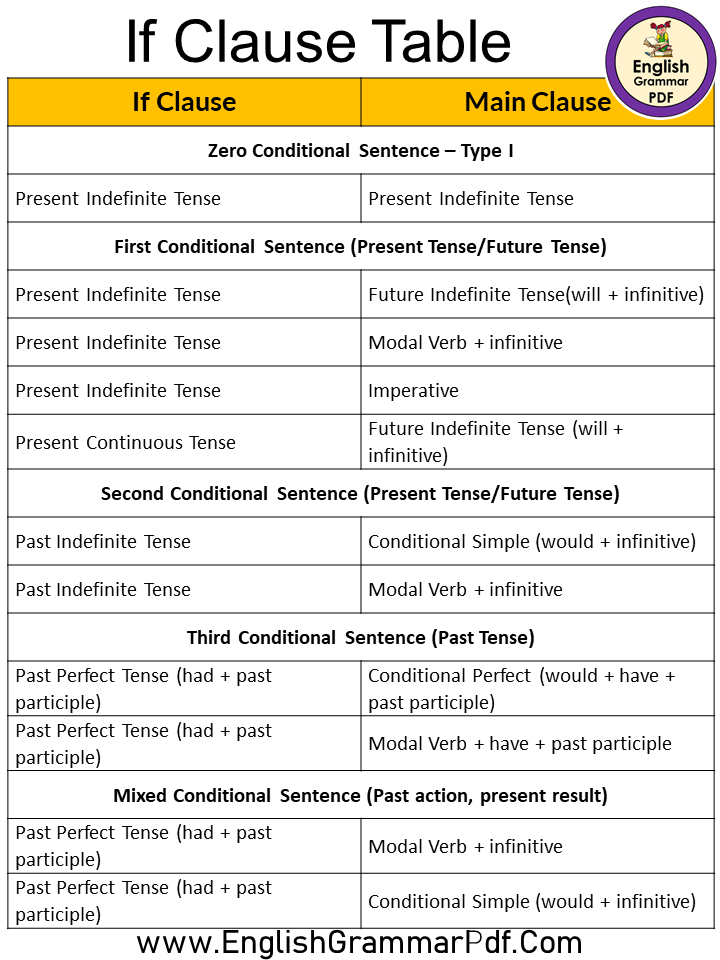First conditional sentences are used to talk about real and possible situations in the future. They express conditions that are likely but not certain to happen, and the results that will follow if these conditions occur.
Structure
The structure of a first conditional sentence typically follows this pattern:
- If + present simple tense, + future simple tense (will + base verb).
Alternatively, the result can precede the condition, especially in spoken English.
Rules
- Use the present simple tense for the condition: This indicates a real possibility in the present or future.
- Use the future simple tense (will + verb) for the result: This suggests a likely outcome in the future based on the condition.
- Can include modal verbs like might, can, or should in the result clause: These modals adjust the certainty or suggest a recommendation based on the condition.
- ‘If’ can sometimes be replaced with ‘when’ if the condition is very likely: However, ‘if’ is more common as it emphasizes the conditionality of the situation.
First Conditionals Example Sentences
- If it rains tomorrow, we will stay indoors.
- If you study hard, you will pass the exam.
- If she arrives late, we will start without her.
- If you don’t hurry, you might miss the train.
- If he practices daily, he can become a professional player.
- If you leave now, you will catch the bus.
- If they win the match, they will celebrate tonight.
- If you call him now, he will help you with your homework.
- If she doesn’t eat, she will get hungry later.
- If we save enough money, we can go on vacation.
- If you take your medicine, you will feel better.
- If I see him, I will tell him the news.
- If you don’t water the plants, they will die.
- If you ask politely, she might answer your question.
- If you press that button, the machine will start.
- If we don’t leave now, we will be late.
- If you submit your application today, you will get a response by next week.
- If you eat too much junk food, you will gain weight.
- If you don’t sleep well tonight, you will be tired tomorrow.
- If they don’t agree to the terms, the deal will fall through.
These sentences illustrate the flexibility and practical use of the first conditional for discussing future possibilities based on real conditions.
Related:



